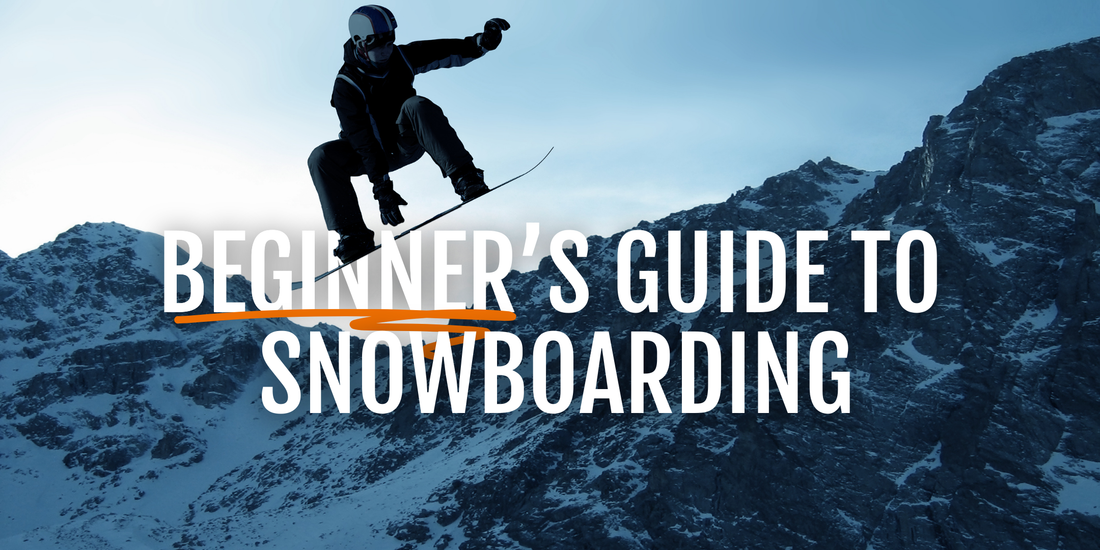
Beginner’s Guide to Snowboarding in the UK: Everything You Need to Know
Share
Snowboarding offers breathtaking scenery and the unbeatable thrill of gliding down a mountain, making it a favourite for many outdoor enthusiasts. It's an amazing sport to pick up, and surprisingly, it can be more budget-friendly than you might think.
If you're wanting to try something new and adventurous, then this guide will go over all the essentials. From the gear you'll need to the best locations in the UK to learn snowboarding, and everything in between, we’ve got you covered.
What equipment do you need for snowboarding?
To get started, the basics include a snowboard, boots, and bindings. However, there are additional pieces of equipment that can enhance your experience by making snowboarding safer and more comfortable.
While you don’t need to purchase everything right away, particularly if you're just learning, here’s a useful checklist of essentials to bear in mind anyway:
- Snowboard and bindings: The prerequisite items for snowboarding, as they are the core of your setup that enables you to ride.
- Snowboard helmet: Integral for safety, protecting your head from falls or collisions.
- Snowboard boots: Specifically designed to provide support and control while riding, making them key for performance and safety.
- Goggles: Important for visibility, protecting your eyes from snow, wind, and glare.
- Snow pants: Waterproof and insulated pants are vital for keeping your legs warm and dry.
- Snowboard jacket: A waterproof and insulated jacket is necessary for protection and warmth.
- Base layers: These moisture-wicking layers help regulate body temperature and keep you dry.
- Gloves or mittens: Insulated and waterproof gloves protect your hands from cold and increase grip.
- Thick socks: Warm and moisture-wicking socks are important for comfort and preventing blisters.
- Snowboarding backpack: Useful for carrying other essential items.
Should you rent or buy snowboard equipment?
For beginners, renting is typically the best way to go. It keeps expenses low while you’re still getting a feel for the sport. Many snowboarding resorts and rental shops provide all the basics, including boards, boots, bindings, and helmets.
Although, as you improve and spend more time on the slopes, buying your own gear can be a smart investment. Having your own setup allows for a more customised fit and greater comfort as you progress.
Where to snowboard in the UK
The UK is host to a wide range of both indoor and outdoor snowboarding slopes, perfect for everyone from beginners to experienced riders:
Indoor and dry snowboarding slopes in the UK
- Plymouth Snowsports Centre - Plymouth, Devon
- SnowDome - Tamworth, Staffordshire
- Ski Rossendale - Rawtenstall, Lancashire
- Chill Factore - Manchester
- Snozone - Castleford, West Yorkshire
- Snozone - Milton Keynes, Buckinghamshire
- The Snow Centre - Hemel Hempstead, Hertfordshire
- Cardiff Ski and Snowboard Centre - Cardiff
- Llandudno Ski Slope and Snowboard Centre - Llandudno, Conwy
- Gloucester Ski and Snowboard Centre - Gloucester
- Snowtrax - Christchurch, Dorset
Natural, outdoor snowboarding resorts in the UK
- Raise - Cumbria, North West England
- Glencoe Mountain Resort - Argyll, Scotland
- Nevis Range - Fort William, Scotland
- Glenshee Resort - Glenshee, Scotland
- Lecht 2090 - Aberdeenshire, Scotland
How hard is snowboarding for beginners?
Starting any new skill can be a bit daunting, and snowboarding is no exception. Yet, with the right guidance, beginners can find it quite manageable. You'll likely start soaking in the experience from day one, and as the week progresses, you'll discover helpful techniques and insights. But, always remember to be patient with yourself and embrace the learning journey.
How long does it take to learn snowboarding?
Learning to snowboard involves developing muscle strength, building a solid core, and maintaining an open mindset to instruction. While some may master the basics within a few hours, for others, it could take several weeks to feel comfortable on the slopes.
Do you need to be fit to snowboard?
Snowboarding works multiple muscle groups, and if you’re not conditioned, you might feel sore afterwards. Beyond muscle strength, snowboarding requires decent cardiovascular fitness, flexibility, and balance. So, if you’re not very active, it’s wise to start preparing several weeks in advance to build your stamina.
Keep in mind that snowboarding is a physically demanding activity, and like any sport, it carries some risk of injury. That said, by incorporating regular stretching, pacing yourself, and heeding your instructor’s advice, you can substantially reduce your chances of getting hurt.
Snowboarding tips for beginners
- Layer your clothing: Begin your day dressed in layers to stay warm. If you start to overheat, it’s easy to peel off a layer for comfort.
- Warm up properly: Take a few minutes to warm up your body with stretches and dynamic movements like star jumps, squats, or push-ups to prepare your muscles and reduce soreness the following day.
- Seek professional instruction: Purchasing lessons from a qualified instructor is one of the best ways to learn the correct techniques quickly and gain confidence on the slopes.
- Accept that falls are normal: Falling is an inevitable part of the learning curve; it’s a sign that you’re challenging yourself, which is crucial for growth.
- Listen to your body: While you’re getting started, be sure to take plenty of breaks and know when to call it a day to avoid exhaustion.
We trust that this guide has given you a solid overview of snowboarding in the UK. If you're eager to hit the slopes, don’t forget the significance of being well-prepared with the right equipment.
At Longsands, we offer an extensive range of stylish and practical snowboarding gear, including trousers, shorts, t-shirts, hoodies, sweatshirts, beanies, and backpacks, as well as a variety of accessories.